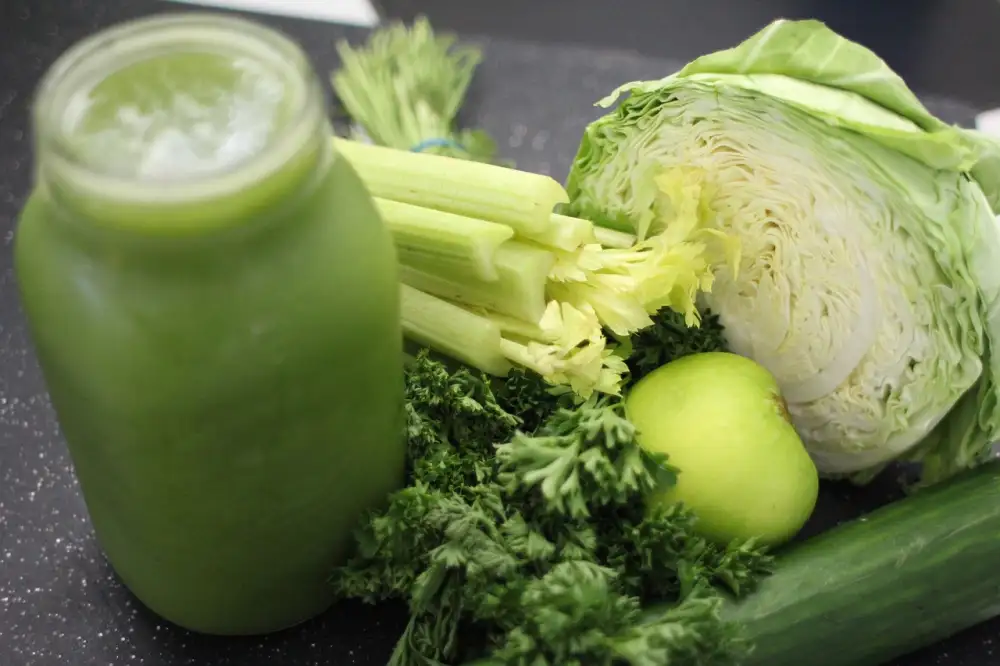Trim Down with Tasty Weight Loss Meals: Unlock the Secrets to Shedding Pounds

- Understanding the Importance of a Balanced Diet
- Incorporating Lean Proteins into Your Meals
- Including Fiber-Rich Foods for Satiety
- Emphasizing the Role of Fruits and Vegetables
- Choosing Whole Grains for Long-lasting Energy
- Incorporating Healthy Fats in Moderation
- Avoiding Processed Foods and Added Sugars
- Portion Control and Mindful Eating
- Meal Prepping and Planning for Success
- Hydration and its Impact on Weight Loss
When it comes to shedding pounds, the key lies in creating a well-balanced and nutritious meal plan. Weight loss meals are designed to help you achieve your goals while still enjoying delicious food. By incorporating the right ingredients and making smart choices, you can trim down without sacrificing flavor or satisfaction. In this article, we will unlock the secrets to successful weight loss meals, providing you with valuable tips and insights to help you on your journey towards a healthier lifestyle. So let's dive in and discover how you can create tasty meals that will support your weight loss goals.
Understanding the Importance of a Balanced Diet
When it comes to weight loss, a balanced diet is key. It's not just about cutting calories; it's about nourishing your body with the right nutrients. A balanced diet ensures that you get all the essential vitamins, minerals, and macronutrients your body needs to function optimally.
A balanced diet consists of a variety of foods from different food groups. This includes lean proteins, fiber-rich foods, fruits and vegetables, whole grains, and healthy fats. Each food group plays a unique role in supporting weight loss.
By incorporating all these food groups into your meals, you provide your body with a wide range of nutrients while keeping your calorie intake in check. This helps prevent nutrient deficiencies and keeps you feeling satisfied and energized throughout the day.
Remember, balance is key. Avoid extreme diets that cut out entire food groups or severely restrict calories. Instead, focus on creating meals that are nutritious and delicious, allowing you to enjoy the process of losing weight while still nourishing your body.
Incorporating Lean Proteins into Your Meals
Incorporating lean proteins into your meals is essential for successful weight loss. Not only do proteins help to build and repair tissues, but they also keep you feeling fuller for longer, reducing the chances of overeating. Opt for sources such as skinless chicken breast, fish, tofu, beans, and legumes. These options are low in fat and high in nutrients, making them ideal choices for weight loss. Experiment with different cooking methods to add variety and flavor to your meals while keeping them healthy and satisfying.
Including Fiber-Rich Foods for Satiety
One key element in creating effective weight loss meals is incorporating fiber-rich foods. Fiber not only aids in digestion but also provides a feeling of fullness, helping to curb cravings and prevent overeating. Foods such as whole grains, legumes, fruits, and vegetables are excellent sources of dietary fiber. Including these foods in your meals can help you feel satisfied for longer periods, reducing the temptation to snack on unhealthy options. So load up your plate with colorful salads, hearty soups, and whole grain dishes to keep hunger at bay while shedding those pounds.
Emphasizing the Role of Fruits and Vegetables
When it comes to weight loss meals, fruits and vegetables play a vital role. Not only are they low in calories, but they are also packed with essential vitamins, minerals, and antioxidants that support overall health. Incorporating a variety of colorful fruits and vegetables into your meals can help you feel fuller for longer while providing your body with the nutrients it needs. Whether it's adding berries to your breakfast smoothie or filling half your plate with leafy greens at lunch and dinner, make sure to prioritize these nutrient-dense foods in your weight loss journey.
Choosing Whole Grains for Long-lasting Energy
When it comes to weight loss, choosing the right carbohydrates is crucial. Whole grains are an excellent choice as they provide long-lasting energy and are packed with essential nutrients. Unlike refined grains, which have been stripped of their fiber and nutrients, whole grains retain their natural goodness. Incorporating whole grains like brown rice, quinoa, and whole wheat bread into your meals will not only keep you feeling fuller for longer but also provide a steady release of energy throughout the day. So swap out those processed white carbs for whole grains and enjoy sustained energy levels while shedding those pounds.
Incorporating Healthy Fats in Moderation
While it may seem counterintuitive, including healthy fats in your weight loss meals can actually aid in shedding pounds. Healthy fats, such as those found in avocados, nuts, and olive oil, provide essential nutrients and help keep you feeling satisfied.
When incorporating healthy fats into your meals, it's important to do so in moderation. While they are beneficial for overall health, fats are also high in calories. Be mindful of portion sizes and opt for healthier cooking methods like baking or grilling instead of frying.
Including a small amount of healthy fat in each meal can help enhance the flavor and texture of your dishes while keeping you satiated for longer periods. So go ahead and sprinkle some chopped almonds on your salad or drizzle a little bit of olive oil over your roasted vegetables – just remember to enjoy them in moderation as part of a balanced diet.
Avoiding Processed Foods and Added Sugars
When it comes to weight loss, one of the key factors to consider is avoiding processed foods and added sugars. These types of foods are often high in calories, unhealthy fats, and artificial additives that can hinder your weight loss efforts. Instead, focus on consuming whole, unprocessed foods that are nutrient-dense and free from added sugars. Opt for fresh fruits and vegetables, lean proteins, whole grains, and healthy fats. By making this simple change in your diet, you'll be able to reduce your calorie intake and improve your overall health.
Portion Control and Mindful Eating
Portion control and mindful eating are essential components of successful weight loss. It's not just about what you eat, but also how much you eat. By paying attention to portion sizes, you can prevent overeating and ensure that you're consuming the right amount of calories for your body's needs. Mindful eating involves being present in the moment while eating, savoring each bite, and listening to your body's hunger and fullness cues. This helps you develop a healthier relationship with food and prevents mindless snacking. Remember, it's not about depriving yourself, but rather finding balance and satisfaction in smaller portions.
Meal Prepping and Planning for Success
One of the key strategies for successful weight loss is meal prepping and planning. By taking the time to prepare your meals in advance, you can ensure that you have healthy options readily available and avoid making impulsive food choices.
Start by creating a weekly meal plan that includes a variety of nutritious foods. This will help you stay on track and prevent boredom with your meals. Consider incorporating lean proteins, fiber-rich foods, fruits and vegetables, whole grains, and healthy fats into your plan.
Once you have your meal plan in place, spend some time prepping your ingredients. Chop vegetables, cook grains, marinate meats - whatever it takes to make cooking during the week easier and more efficient. Store these prepped ingredients in separate containers or bags for easy access.
When it comes to portion control, consider investing in reusable portion control containers or using a food scale to measure out appropriate serving sizes. This will help you avoid overeating and stay within your calorie goals.
Another helpful tip is to batch cook certain meals or components of meals. For example, you can cook a large batch of chicken breast or quinoa and use them throughout the week in different recipes. This saves time and ensures that you always have something healthy on hand.
Lastly, don't forget about snacks! Prepping healthy snacks like cut-up fruits or veggies with hummus can help curb cravings between meals.
By dedicating some time each week to meal prepping and planning, you set yourself up for success on your weight loss journey. It not only saves time but also ensures that you have nutritious options available whenever hunger strikes. So get organized, get prepping, and watch those pounds melt away!
Hydration and its Impact on Weight Loss
Hydration plays a crucial role in weight loss. Drinking an adequate amount of water helps boost metabolism and aids in digestion, leading to more efficient calorie burning. Additionally, staying hydrated can help control appetite and prevent overeating. Research has shown that people who drink water before meals consume fewer calories. So, make sure to stay hydrated throughout the day by drinking plenty of water, herbal teas, and incorporating hydrating foods like fruits and vegetables into your weight loss meals. Remember, proper hydration is key to achieving your weight loss goals!
In conclusion, creating delicious and nutritious weight loss meals is not only possible but also enjoyable. By understanding the importance of a balanced diet and incorporating lean proteins, fiber-rich foods, fruits and vegetables, whole grains, and healthy fats in moderation, you can create meals that are both satisfying and beneficial for weight loss. Avoiding processed foods and added sugars, practicing portion control and mindful eating, meal prepping and planning, as well as staying hydrated are all key factors in achieving your weight loss goals. With these strategies in mind, you can trim down while still enjoying tasty meals that nourish your body.
Published: 11. 01. 2024
Category: Health



